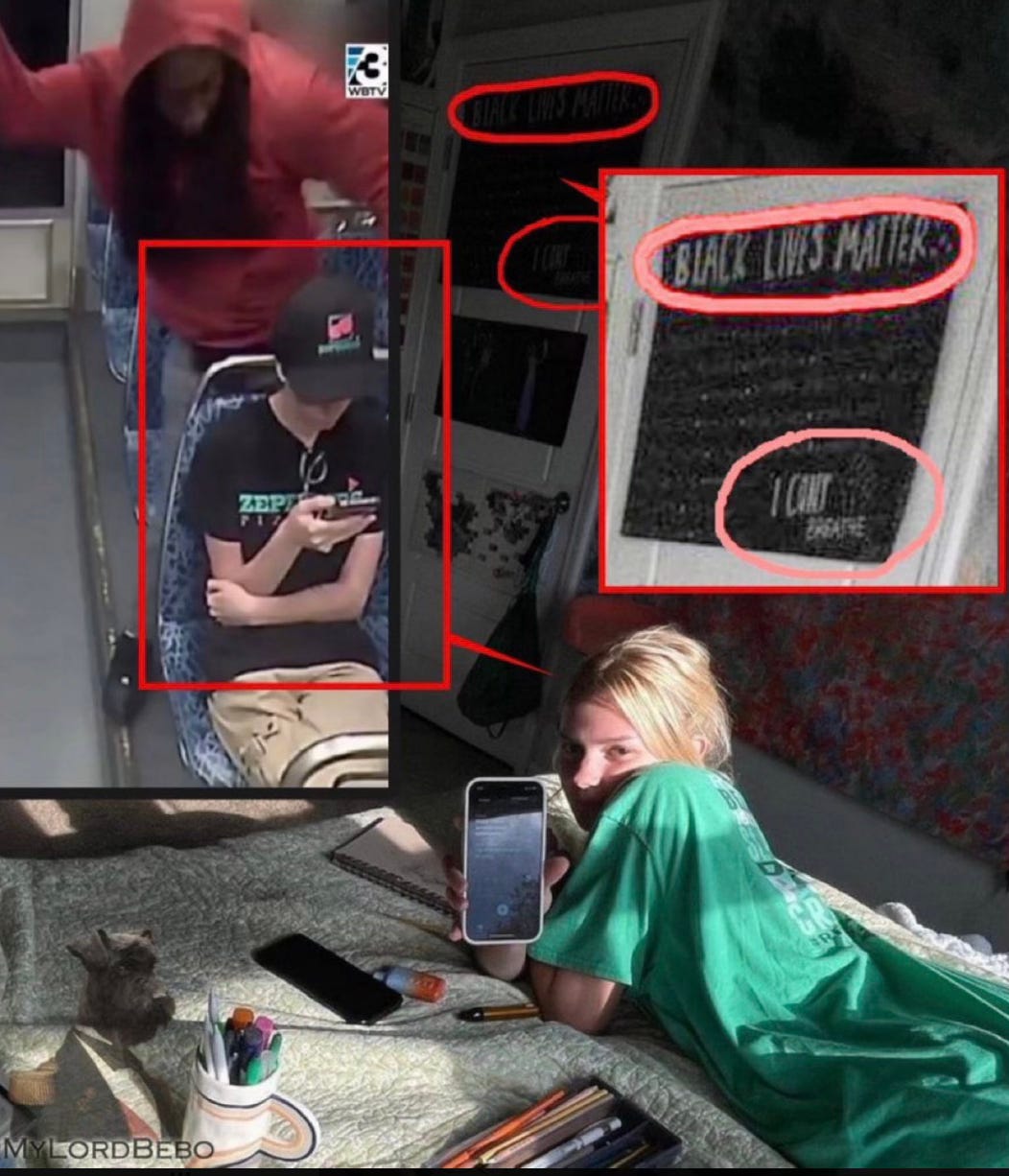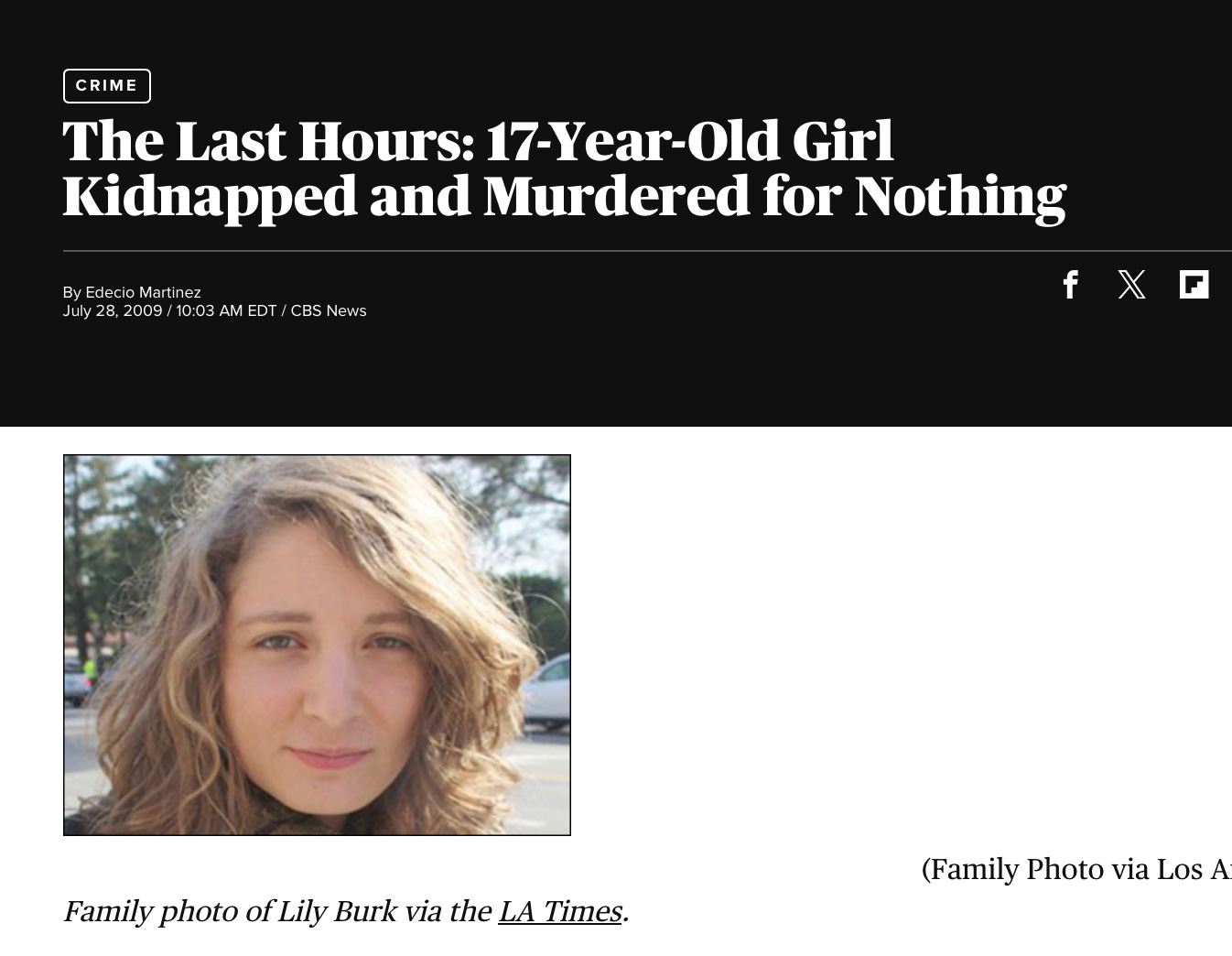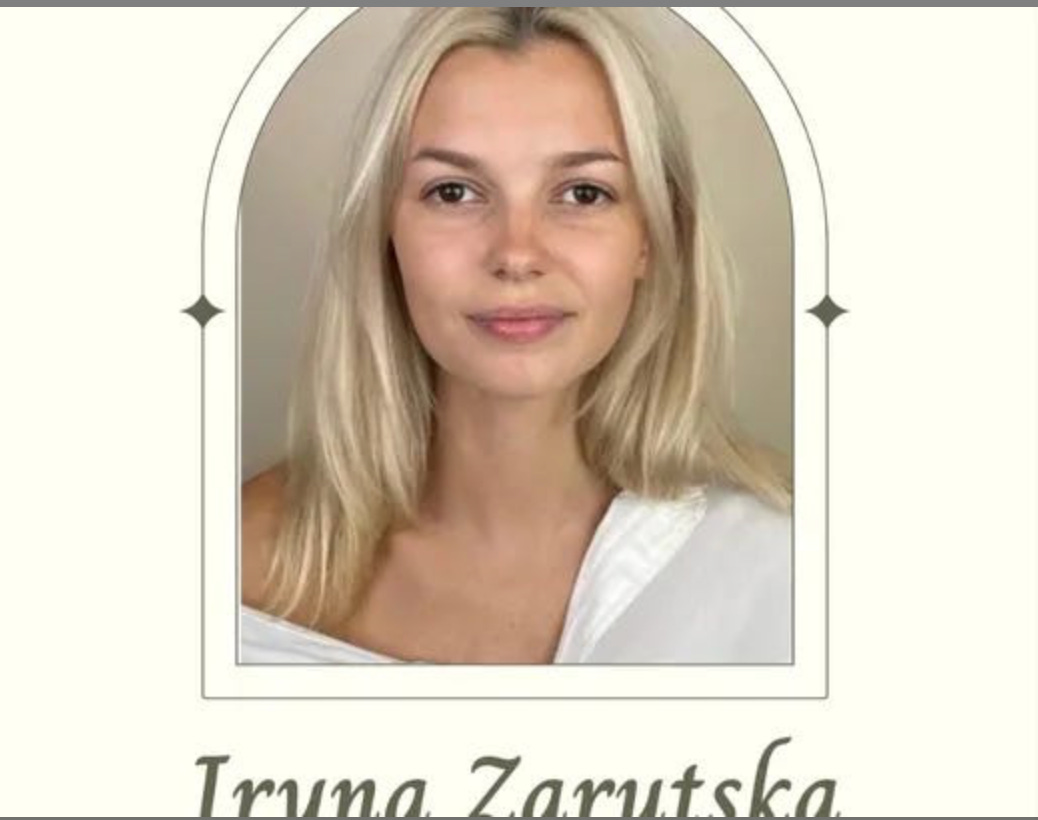After a shift at Zepeddie's Pizzeria in Charlotte, North Carolina, Iryna Zarutska boarded the train and quickly made a decision where to sit. Did she think about her safety? Did she fear sitting in front of a Black man with dreadlocks and a face twisted into worried knots? Or did she find a seat far away from him, just on a hunch?
The truth is that Iryna had no real choice. If she avoided the seat in front of the Black man, she might look like a racist. She had no reason to fear him, after all, because she was sympathetic to the plight of racism in America and even had the words “Black Lives Matter” and “I can’t breathe” scrawled on a chalkboard in her room.
She was learning to speak English, and what better way than to get to know the villains and the heroes in America in 2025? She was just 23, having arrived in the US at the age of 20, with a degree in art and restoration from Synergy College in Kyiv. She joined a settlement of other Ukrainian refugees in Charlotte.
She knew enough to tuck her hair into her cap, keep her glasses on, and not look like the blonde beauty that has now blanketed all social media. If you look like that, no one will leave you alone.
But a little fear would have done Iryna good, as it would do any young woman riding the train at night. Fear is her only protection. The problem is, when it comes to Black men, white women are shamed out of that fear. They don’t want to appear like racists or Karens. They won’t grab their purse in an elevator or avoid sitting too close to a Black man. They don’t want to buy into the stereotype that has white women fearing Black men for centuries.
As she boarded the train that night heading home, she could not have known that the man she sat in front of had thirteen previous arrests and was diagnosed with schizophrenia. She wrapped her arms around her body and seemed to display a sense of foreboding. She looked afraid of something or someone, just not of the guy sitting behind her.
With her earbuds canceling out all noise, she might not have heard the man take out his knife. Before she knew it, he was stabbing her neck, killing her. Did the other passengers scream? Did anyone try to do anything to alert her to the danger? No. They were too afraid.
When her murderer finished, he paced around the train as the passengers huddled in fear, with blood dripping all around him, her blood. She escaped the war in Ukraine only to be murdered by a country also at war, at war with the truth. The truth about crime, about mental health, about Defund the Police, about bad governance.
There was a time when this would have been a major news story. Now, after 2020, this story would have to be memory-holed, like every other story where a Black man is the perp. The only stories that go viral now or become major news stories are those that fit the narrative - it’s white men, incels, “white supremacists,” and MAGA you have to fear.
So, how would Iryna have known to even be afraid or cautious that she might want to find a seat far from everyone on the train? Maybe she wouldn’t wear her headphones. Maybe she would look around at everyone, even the guy sitting behind her. But she didn’t.
Here are Megyn Kelly, Rich Lowry, and Charles C. W. Cooke.
Stories like these are reported on local news, but they never capture the attention of the major networks or legacy media, like this story of a woman in Chicago who was beaten to a pulp by a repeat offender.
Reporting on white women as victims might devalue their brand. It might generate outrage and an uproar that they are contributing to racism and discrimination. But what about Iryna and other young women just like her? Will we send them out into the world without warning that violence can come at any time, no matter the skin color?
And why is everyone okay with the double standard? The silence by the media on deaths or killings that don’t involve a white man? How do they get away with lying to their viewers and their readers? Has the New York Times even covered this story? If they do, it will likely be only to call out “MAGA” for turning it into a story about race.
“Don’t be a Good White Liberal”
Those were the words I told my daughter many years ago when she went off to college. “Always protect yourself, no matter who it is. Don’t let white guilt prevent you from being cautious.” I had to tell her that. I had to drill it into her head. It would be our secret. She would never have to tell anyone, but she would know.
What prompted me to tell her that was the story of Lily Burk from 2009. She was the daughter of a progressive Liberal who helped her mother feed the homeless in Los Angeles. She attended one of the expensive, fancy private schools I could never have afforded for my daughter. One day, Burk wanted to practice driving, so her mother sent her out to run some errands.
She happened to see one of the homeless people she fed for charity. She knew him. He knew her. He pressured her to drive him to an ATM and get him some money. Her card didn’t work. So he bashed her head against the dashboard and murdered her.
That was long before Black Lives Matter, before Defund the Police, before cashless bail. Even then, it wasn’t exactly easy to talk about a crime like this, much less warn our daughters as they headed off to college.
But that story haunted me. Even now, I can’t imagine what it must have been like for her mother to wonder, How could I have let her take my car? How could I have raised her to be so trusting? Why didn’t I tell her to be cautious even around homeless Black men? I knew I had to get the message across to my daughter, Don’t be a Good White Liberal at the cost of your own safety.
You’d think I would have followed my own advice. But white guilt runs deep. That’s why in 2023, I fell for a scam. I thought it was a call from my bank. I could tell the caller was Black, so I was as accommodating and trusting as I could be, not wanting to seem like a Karen.
He told me that someone had stolen my bank card, and he listed my purchases. Somehow, he had my account information. Then he said, “Did you wire $4,000 to someone?” And in a panic, I said NO! He said he’d stop the payment, but I had to confirm that it was me. That was my mistake. If I hadn’t been trying not to be a racist, I might have doubted him or asked him if I could call him back, but I was too worried about his feelings.
Once he got my confirmation, he was able to disappear with $5,000 from my bank account, all the money I had. I’ve never told that story because I am ashamed of how stupid I was, how easily manipulated I was, and that white guilt. It turned out to be a harbinger of things to come. The next year, I was canceled by Hollywood and called a “racist,” which would wipe out my income. Oh, the irony.
The story here isn’t to fear Black men or that Black men are more dangerous. It’s that white guilt often means ignoring the gut instinct for self-protection. The false narrative pushed out by Hollywood, the legacy media, and the Democrats - that only white men are bad or violent will ultimately make all women unsafe, and hiding the truth to fit the narrative will get more women like Iryna killed.
Every night I go to sleep, I worry about my daughter. I want Trump to send the National Guard into Cleveland. I want her to be protected while living in such close proximity to a high-crime city.
But if she can’t be protected and the streets can’t be safe, then let her remember to protect herself, to be aware of who and what is around her at all times. I made her watch the video. I don’t want her to be another girl on the train, failed by weak leaders and undone by white guilt.
Iryna deserved better. She deserved to fulfill her life as an artist. To maybe get married, maybe travel back to Ukraine when the war is over. But most of all, she deserved to be safe, to be left alone, to make it to her stop just so she could get off the train and find her way back home safe and sound.
The GoFundMe for Iryna has now raised $112,616.
//
















